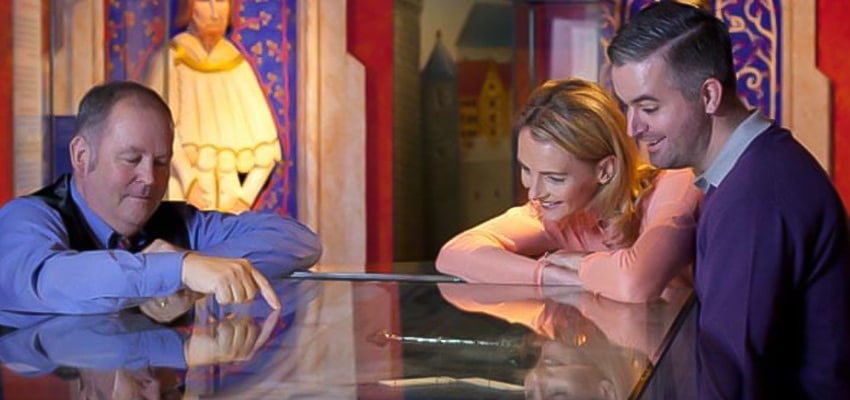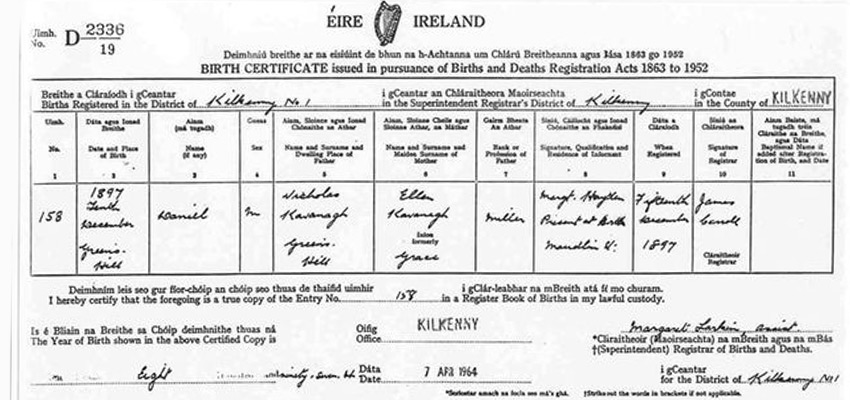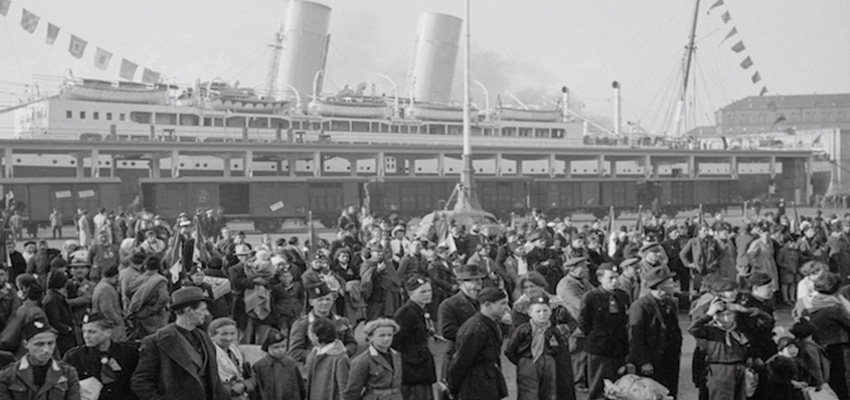Ireland is proud of her Irish-American descendants in America, including Joe Biden. Ballina, a Mayo County town in western Ireland, sprouted American and Irish flags during election countdown with signs that read, “Go Mayo, Joe!” (Many Irish left the small town of Ballina and headed to Scranton—so many that the two towns are sister cities.) Ronald Reagan, too, headed to the country of his ancestors, visiting his family homes. And both met cousins while there.
We’re motivated to discover our family history and origins for many reasons. We want to carve out a place for our family in the large picture of history. Some of us may have lost family members and feel adrift. We may feel a sense of responsibility to preserve our family’s past for future generations. And, of course, we love hearing our stories and storytelling.
We’ve Always Been Interested in our Roots
People’s urge to trace their roots breaks the barriers of time and culture. The Old Testament has numerous pages of who begat whom. Egyptian hieroglyphics provide the records of pharaohs throughout history. Confucius’s family tree, maintained for over 2,500 years, is listed in the Guinness Book of Records.
In 1538, Thomas Cromwell ordered English churches to record parish weddings, christenings, and burials. After that time, separate records were also kept of the titled families in Great Britain and Ireland. They wanted to keep track of family ties for inheritance, kinship, and claims of royalty. Some went so far as to create family trees that traced the ancestry of a ruler to the English god, Woden.
Searching Records for Your UK and Irish Ancestors
The best place to start discovering your Irish and UK family roots is to speak with the oldest people in your family. Interview them about their own grandparents and ask them to gift you with the family stories they heard as children. Many of our elders have old family Bibles that list births, deaths, and marriages. Others may have letters that were passed down through time. Your elders likely have information that’s vital to your search, but they’ve assumed no one was interested. Ask if you can go through old boxes with them. Even if you come up empty-handed, which is unlikely, doing this together creates joy and a strong family bond.
Outside Sources
Your next step is to start digging through outside sources. Census records, property deeds—those are particularly interesting—and wills all include family documentation. Sometimes, between the lines, extraordinary lives rise up. Many of our ancestors came to America by boat, often through Ellis Island. These passenger lists still exist both in America and in Ireland. Records, and the lack of them, also make it clear that some people were valued more highly than others. Many women in the 15th century, unless they were nobility, were simply named Mary in church records.
On Your Way
When you learn the county of your ancestors’ birth, then you’re really on your way. (Remember, Northern Ireland was formed in 1921. Before that time the county records are simply under “Ireland.” Both Ireland and Scotland have been part of the UK, become independent, and then moved back into the UK again.) Ireland’s and Scotland’s county information includes parish church records, military records, government records, and relationships. You’re very likely to discover that you still have relatives living in the county you’re researching, and they’d love to hear from you. That’s exciting!
Today, finding your roots is considerably easier than it was just a decade or so ago. Here are a few places to consider using for your search: The LDS Church’s Family History Library is available to all, and has over 2,000,000 microfiche and film records; Online, there’s the Ireland-Australia Transportation Database; Irish Genealogy has information on searching for records in Ireland; Irish Ships Passengers Lists; The National Archives of Ireland; and Baptismal and Birth Records for Ireland are good sources. Offline, The Library of Congress Sources for Research in Irish Genealogy is a treasure trove. Of course, there are also the ancestry and DNA sites that charge for membership. The best approach is to think of this as a puzzle, and use bits and pieces from several sources to trace your roots.
Start with family narratives, stories, and traditions. Enjoy the process of discovering your family’s history. It’s a great way for the generations to bond and feel their connections down through time.
Ask your Destination Expert about creating an Ireland family vacation to discover your roots! You will most likely find cousins who are happy to welcome you.












